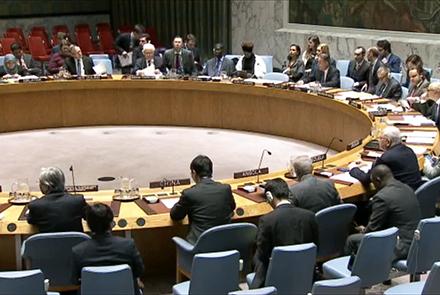Gerard van Bohmen, Chief of the UN sanctions committee on Monday night (Kabul time) briefed the UN Security Council on the Afghan peace process, and suggested the 15-member body ensure the complete implementation of sanctions against the Taliban within the legal framework that exists.
Bohemen suggested that the UN sanctions committee and Afghanistan’s Central Bank jointly work to terminate the Taliban’s access to their financial resources and that countries implement travel sanctions against the group’s leaders.
Briefing the UNSC members, meanwhile, Afghanistan’s permanent representative to the UN Mahmoud Saikal also urged the world body to include the names of Taliban leaders on its blacklist - as they continue to avoid joining purposeful peace negotiations with the Afghan government.
“Any type of outside contact with the Taliban, or other such groups, without the prior knowledge and approval of the Afghan government, was seen as a legitimization of terror, a direct breach of sovereignty, and a clear contravention of the sanctions regimes. Effectively enforcing existing resolutions, including the sanctions regimes, could have a significant impact. The timely inclusion of select irreconcilable Taliban leaders in the sanctions list and more meaningful interaction between counter-terrorism bodies and Afghan security agencies is essential,” said Saikal in his remarks to the UNSC members.
Meanwhile, the UN Secretary-General’s Special Representative for Afghanistan Tadamichi Yamamoto has also said that there is no military solution to the Afghan crisis. He called on the Taliban to endorse peace and pursue their objectives through a political process.
Peace and stability in Afghanistan are not the sole interests of Afghanistan, he said, urging regional countries to play their role as such conditions will benefit them security-wise and economically.
“We all know that the conflict in Afghanistan has no military solution,” he said.
Yamamoto said all Afghans must come together and work through their problems and find ways to accommodate their differences, for their own joint future.
“The Taliban leadership must reconsider the notion that their objectives can only be achieved on the battlefield,” Yamamoto told the Security Council on Monday night.
“I welcome assurances made by the government that there would be no compromise of the rights of Afghans in implementing the peace agreement, including the rights of victims of gross violations of human rights,” he said.
“It takes courage to enter into a peace process. It is not an admission of defeat – it is a recognition of reality. An endless war ruins the country and impacts on people,” he added.
On Monday, the UN Security Council held a session where member nations reviewed the situations on Afghanistan’s security and stability and slapping sanctions on the Taliban.
Yuri Viktorovich Fedotov, the Executive Director of the United Nations Office on Drugs and Crime (UNODC), meanwhile raised concerns over the increasing level of drug smuggling and production in Afghanistan.
“The recent report “Afghanistan Opium Survey 2016” showed a worrying reversal in efforts to combat the matter. Opium poppy cultivation had increased by 10 per cent and production by 43 per cent. It was against that background, as well as the ongoing insurgency, that the office’s efforts continued in Afghanistan. As well, regional countries and organizations had committed to a sustained and integrated approach to dealing with the production and trafficking of illicit drugs,” said Fedotov.
Bohemen meanwhile said that despite efforts by the Afghan government and international community to convince the Taliban to endorse a peaceful solution of the conflict in Afghanistan, the group continues the bloodshed. He suggested that imposing sanctions on the group in terms of their financial resources could force them come to the negotiation table.


